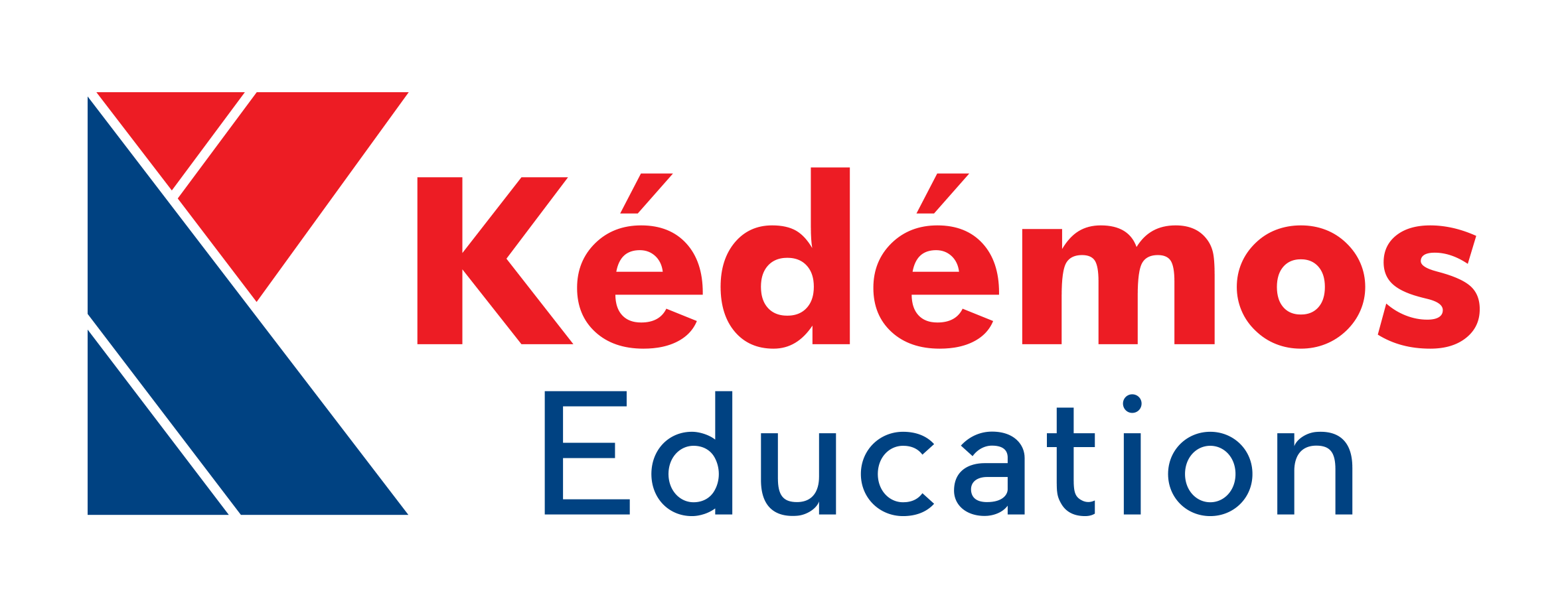The role of an educator has always been demanding, but it seems that in the 21st century, it has become more complex than ever. Today, you are faced with a constantly changing world, where reference points shift as rapidly as technologies evolve, and where students’ needs continue to diversify. Teaching is no longer just about imparting knowledge, it also means guiding, supporting, listening, and adapting. In this article, we explore the challenges of 21st-century educators, with a special focus on the educator-student relationship, and the skills and knowledge required to meet these challenges.
A Transforming Educator-Student Relationship
Increasingly Diverse Student Needs: One of the Key Challenges for 21st-Century Educators
Today’s students come from very different backgrounds. Some are born into digital environments, some deal with complex family situations, and others have learning or attention disorders. This diversity is, of course, a strength; but it requires you to adapt constantly.
In early education, these differences can be quite obvious: some children can already read, while others are just beginning to recognize letters. Some are highly independent, while others need constant support. It’s up to you to create an environment that caters to these different paces while maintaining group harmony.
The Importance of Listening and Empathy from the Earliest Years
More than ever, your interpersonal skills are essential. You can no longer rely solely on your authority or subject knowledge to create a calm classroom climate. You must adopt an empathetic attitude. Be attentive to your students’ emotions, fears, and needs.
This approach requires time and energy, but it yields results: a child who feels heard and respected is more likely to engage in learning. This is especially true in the early years of schooling, when self-confidence and the joy of learning are being formed.
How to Create a Safe and Trusting Environment in a Restless World
The world isn’t always a peaceful place for children: social instability, anxiety-inducing news, and hectic lifestyles can take their toll. As much as possible, it is your responsibility to make the classroom a safe space. This means establishing reassuring routines, nurturing positive relationships, and maintaining a consistent approach. Your gestures, your words, and the way you set boundaries all deeply influence the classroom climate.
Adapting to Technological and Educational Shifts: Another Challenge for 21st-Century Educators
Keeping Up with the Rise of Digital Tools
Digital tools have transformed education. Tablets, interactive whiteboards, educational platforms… These can all enrich your teaching practices. But only if you know how to use them effectively. You’re probably often asked to integrate these tools without having undergone proper training. The risk? Feeling overwhelmed or like these tools are useless if the technology isn’t suited to your or your students’ needs.
Smart Integration of Screens in the Classroom
Screens can be a window to the world and a fun way to explore content. But their use must be carefully managed. In early childhood classrooms, hands-on learning, human interaction, and physical movement remain essential. You must strike a balance: use digital tools as a means to enhance learning, not as an end in themselves.
Balancing Tradition and Pedagogical Innovation
Active learning, interactive lessons, project-based learning, emotional intelligence… New teaching approaches are emerging all the time, offering exciting new possibilities. But how do you choose wisely? How can you innovate without losing your footing? It’s not about changing everything overnight, but about allowing yourself to experiment, adjust, and craft your own teaching style, blending tradition and innovation.
Managing Growing Daily Pressures: Yet Another Challenge for 21st-Century Educators
Balancing Institutional Demands and Real-Life Classroom Realities
You’re caught between different forces: institutional expectations (curricula, assessments, administrative tasks) and the realities on the ground (emergencies, unpredictability, human complexity). This constant tug-of-war can lead to stress or even feelings of helplessness.
It’s vital to remind yourself that you’re doing your best within a challenging framework. Learning to set boundaries, prioritize, and respond wisely to conflicting demands is a key 21st-century skill.
Taking Care of Yourself to Better Support Students: One of the Greatest Challenges for 21-Century Educators
Self-care isn’t a luxury. It’s a requirement for doing your job well. Mental overload, emotional burnout, and physical exhaustion are real risks you can’t ignore. Taking breaks, talking with colleagues, and learning stress management techniques all help maintain your personal and professional balance.
What You Need to Know to Overcome the Challenges for 21st-Century Educators
Developing Social and Emotional Skills
Academic knowledge matters, but it’s no longer enough. You also need to manage conflicts, communicate effectively, motivate, and encourage. These so-called “soft skills” have become just as important as “hard” technical skills.
Lifelong Learning Without Feeling Overwhelmed
Professional development is essential, but it can also feel like an added burden. That’s why it’s important to choose your training carefully, based on your actual needs. Don’t hesitate to discuss with colleagues, share resources, and organize peer-led workshops. After all, collective intelligence is a powerful tool.
Building Strong Relationships Between Parents and Teachers
Your students’ parents are not your opponents: they are your greatest allies. As a 21st-century educator, you are called to cultivate good relationships with the parents of your young learners. Clear, respectful, and consistent communication is key to avoiding misunderstandings and building trust.
Conclusion
As you’ve seen, the challenges of 21st-century educators are numerous, but they are not insurmountable. You work in a field that is constantly evolving, at the crossroads of social, cultural, and technological changes. This is both a responsibility and a tremendous opportunity: to help shape the education of tomorrow.
Every day, through your actions, your words, and your presence, you plant seeds of knowledge, confidence, and humanity. And that is something no technology can ever replace.








